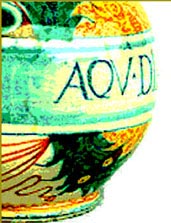| |
|
|
| |
|
|
| |
| Crèdits / Crédits / Credits |
|
|
|
|
|
AVALUACIÓ DELS APRENENTATGES |
|
|
|
|
|
|
|
|
PEER ASSESSMENT AS AN APPROACH TO JUDGE GROUP WORK: DOES IT WORK?
|

|
|
|
|
Rodilla, V |
|
|
|
|
RESEÑA |
|
|
La estrategias de evaluación que realizan los estudiantes sobre sus propios compañeros (peer
assessment) se conocen desde hace unos años y se han descrito y demostrado los beneficios que
de su utilización se derivan. Estos métodos evaluativos incrementan la motivación de los
estudiantes, refuerzan su autoestima y estimulan el razonamiento crítico. Es además una
estrategia muy útil para determinar la contribución que realiza cada estudiante cuando se trabaja
en grupo. Es sin embargo un tipo de evaluación que puede resultar difícil de implementar si no
recibe el apoyo de los estudiantes. En este artículo describimos y discutimos el relativo poco
éxito que hemos tenido cuando hemos tratado de utilizar autoevaluación y peer assessment para
evaluar el trabajo en grupo en España, mientras que una estrategia similar nos funcionaba extremadamente bien en el Reino Unido. Discutimos también las razones que podrían explicar esta aparente contradicicón |
|
|
|
|
|
REVIEW |
|
|
Peer assessment strategies have been around for quite a while and the benefits derived from
their implementation have been described and demonstrated. Peer assessment increases student
motivation, builds up on self confidence and stimulates critical thinking and is a particularly
useful strategy to assess the contribution of each student to group work. It is however a type of
assessment which can be difficult to implement if the students do not support it. In this paper we
describe and discuss the relative lack of success we have had when we have tried to use self and
peer assessment to evaluate group work in Spain, whereas a very similar strategy worked
extremely well for us in the United Kingdom. We also discuss the reasons which may explain
this apparent contradiction. |
|
| |
 |
| |
tornar al sumari |
|
|



